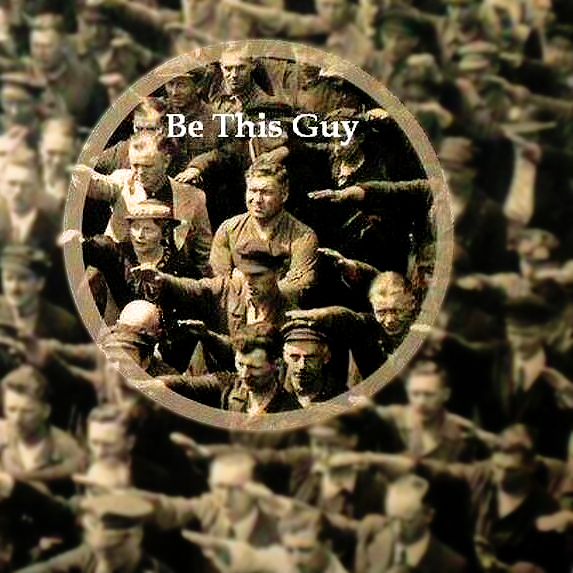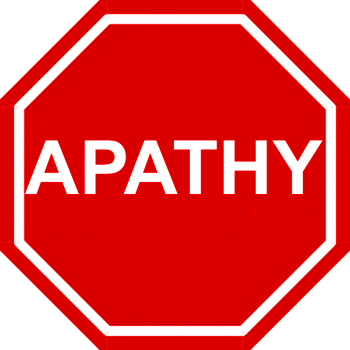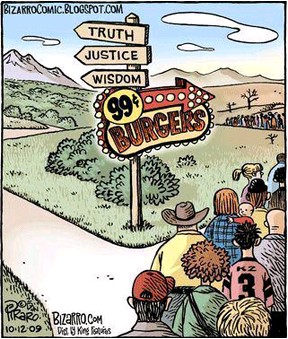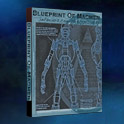welcome
|
||
Slave Mentality
"I have found that, to make a contented slave, it is necessary make a thoughtless one. It is necessary to darken his moral and mental vision, and as far as possible, to annihilate his power of reason. He must be able to detect no inconsistencies in slavery; he must be made to feel that slavery is right...." -- Frederick Douglass --
Truthstream Media | First published at 18:29 UTC on April 21st, 2020. Please help support us on Patreon, read our goals here: https://www.patreon.com/truthstreammedia Truthstream Can Be Found Here: Our Film: TheMindsofMen.net LINKS: World Health Organization | The Occult In Government
"Technological Resurrection" and the Future of Being Truthstream Media | First published at 06:06 UTC on April 29th, 2020. Please help support us on Patreon, read our goals here: https://www.patreon.com/truthstreammedia Truthstream Can Be Found Here: Website: http://TruthstreamMedia.com | FB: http://Facebook.com/TruthstreamMedia
The Purpose of Disruption Truthstream Media | First published at 10:29 UTC on May 15th, 2020. Please help support us on Patreon, read our goals here: https://www.patreon.com/truthstreammedia Truthstream Can Be Found Here: Website: http://TruthstreamMedia.com | FB: http://Facebook.com/TruthstreamMedia LINK: Eugenicist Bill Gates
A Few Not So Random Thoughts on the Myth of Santa Claus Truthstream Media | First published at 01:53 UTC on May 21st, 2020. Please help support us on Patreon, read our goals here: https://www.patreon.com/truthstreammedia Truthstream Can Be Found Here: Website: http://TruthstreamMedia.com | FB: http://Facebook.com/TruthstreamMedia
Brainwashed North Korean Death Camp Escapee Misses Gulag
Can a Slave Ever Truly Understand Freedom? The man who escaped from a North Korean
Can a person born into slavery ever truly understand the sanctity of freedom? Shin Dong-hyuk is the only person to have ever escaped from a North Korean death camp and lived to tell the tale. He was born inside Kaechon internment camp (Camp #14) and remained there for over 22 years, witnessing the public execution of his mother and brother, suffering torture, beatings, near starvation and all manner of cruel and inhumane punishment. Having risked his life to escape the camp and defect to South Korea, Dong-hyuk is now a noted human rights campaigner who travels the world speaking about the Stalinist dictatorship of North Korea and its infamous network of internment camps in which some 200,000 prisoners are incarcerated.
The outstanding documentary Camp 14: Total Control Zone tells Dong-hyuk’s harrowing story, while also featuring interviews with former camp guards who describe how they were given complete power to torture and kill camp inmates at their own discretion. Dong-hyuk chillingly describes how he felt no emotion whatsoever at seeing his mother hanged and his brother shot as a result of him informing on them after he overheard the two discussing an escape plot. This emphasizes how the unremitting indoctrination and brutality of the state, in its most savage form, even has the power to obliterate the ability to embrace the innate concepts of family and love. In another clip, Dong-hyuk explains how an old man with whom he shared a cell saved his life by tending to his wounds after a barbarous torture session at the hands of camp guards. “I was 14 and the first time in my life I got human affection….I had never felt before that human beings could be social animals,” said Dong-hyuk, adding that he never experienced such feelings outside the camp.
However, the most incredible aspect to Dong-hyuk’s story is that he actually wants to return to the prison camp in which he was born because he preferred his simple existence there in comparison to life in ultra-modern South Korea. “I would like to return to North Korea – my home – to a labor camp for prisoners….I want to live at the camp where I was born,” said Dong-hyuk, adding that he preferred the suffering of beatings and starvation over the suffering of not having enough money in South Korea. Noting that he rarely ever saw anyone commit suicide in the camp yet saw stories on the news every night about South Koreans killing themselves, Dong-hyuk said he missed life in the camp.
“I missed the innocence and the lack of concerns I had. In the camp where I lived I had a pure heart – I was really naive, I didn’t have to think about anything,” said Dong-hyuk, adding, “I miss the purity of my heart, I don’t know how else to say it, I miss my innocent heart.” Dong-hyuk’s story serves to illustrate a chilling proposition – can someone who has only ever known slavery ever yearn for or even understand the concept of freedom? Can the “lack of concern” that Dong-hyuk describes be translated into a contemporary context, with billions of people content to remain imprisoned within their own self-imposed jail cells for fear of stepping outside their comfort zone and exercising their freedoms? Dong-hyuk’s sentiments reveal the allure of statism in its most undiluted expression – the ability to induce the most potent form of Stockholm syndrome within the slave by offering total protection from all external and unforeseen influences, thereby eliminating the need of the individual to even think about never mind exercise any form of free will. Facebook @ https://www.facebook.com/paul.j.watson.71 ********************* Paul Joseph Watson is the editor at large of Infowars.com and Prison Planet.com
New Film Foreshadows Drug-Induced Mind Control Dystopia
Published on Oct 8, 2014 2014's release of "The Congress" challenges the viewer to consider what the real outcome of the ultimate social fantasy will be. The film stars Robin Wright as herself, a successful Hollywood actress whose personal decisions have frustrated the Hollywood machine so many times that they no longer want to work with her. She is offered a contract to allow the company to capture her likeness and personality digitally but prohibiting her from ever working as an actress again. ‘The Congress’, based loosely on Stanislaw Lem's science fiction novel, "The Futurilogical Congress”, explores a possible future scenario that seems at times a little too prophetic. The result is a film that presents an archetypal warning which has been echoed by many great artists throughout the decades; once humanity allows itself to be consumed by fantasy and deception it opens the door to a totalitarian dictatorship. Related articles on mind control: http://www.infowars.com/10-modern-met... http://www.infowars.com/fluoridation-... http://www.infowars.com/the-basis-of-... http://www.infowars.com/alex-jones-tv... http://www.infowars.com/unearthed-fil...
Obedient DC Metro Passengers Wait For Their Death Published on Jan 13, 2015 A DC Metro passenger train stopped around 3pm yesterday and smoke began to fill the cars. Instead of evacuating the train, obedient passengers listened to the voice over the loud speaker and stayed in the smoke filled cars for over thirty minutes until firefighters arrived. Why did they do this? Do you stay in burning building until firefighters come to evacuate you? Was this a drill to see if people would listen to authority, probably not but subways have been used by the CIA to test bioweapons in the past. It's a shame that one person succumbed to the smoke as obedient commuters waited patiently for their death.
Conspiracy Theorist Now Convinced Global Warming is Real Published on Feb 11, 2015 Infowars reporter Dan Bidondi enjoys a hot and sunny day as he proves the global warming dissenters wrong. Its obvious now that global warming was real all along. http://www.infowars.com/conspiracy-th... LINKS : Climategate Is Still the Issue Religious Leaders Politicians Sellout to Rockefeller Foundation
WAKE UP!...BE THIS GUY
Why Are Americans So Apathetic? (And what can be done about it?) - BFP Roundtable -
-- Harriet Tubman --
"I freed a thousand slaves; I
could have freed a thousand more,
Only the vigilant can maintain their liberties, and only those who
are constantly and intelligently "A society, most of whose members spend a great part of their time,
not on the spot, not here and now and in their calculable future, but somewhere else, in the irrelevant other
worlds of sport and soap opera, of mythology and metaphysical fantasy, will find it hard to resist the
encroachments of those who would manipulate and control it.” - Aldous Huxley - LINK: Bread and Circus
REACH OUT TO OTHERS [Help Educate Family And Friends With This Page And The Links Below]
MORE: Propaganda
History | Propagandizing Through
Games | Bread and Circus | Learned Helplessness |
| ||
























